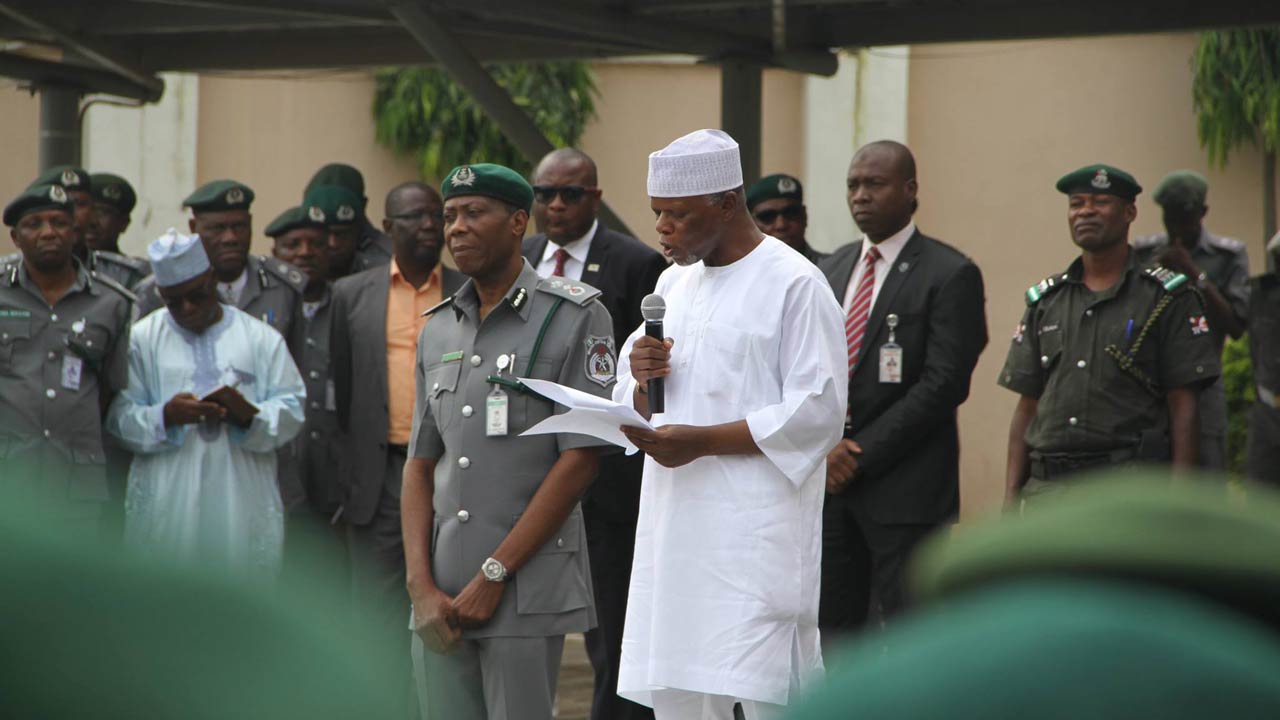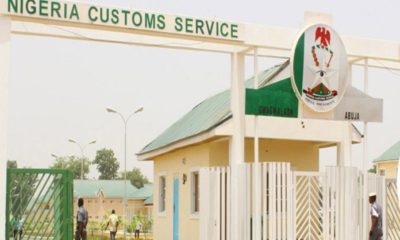- Customs Suspend 300 Clearing Licences Over Fraud
The Nigeria Customs Service has reportedly suspended 300 clearing licences due to alleged fraudulent activities.
It was gathered that licences belonging to members of the Association of Nigeria Licensed Customs Agents including that of its National President, Tony Nwabunike, were suspended because they were hacked and used to smuggle vehicles out of the port.
The Service also flagged the popular Nnewi Building beside the Lagos Port Complex in Apapa as a notorious venue for smuggling syndicate, specialising in clearing document falsification, and hacking of passwords issued to licenced Customs agents.
The building houses numerous cybercafes known as Direct Traders Input Cafes. However, in 2016, the Customs scrapped their operations following reported cases of high scale fraud and instead, issued DTI passwords directly to clearing agents.
The Zonal Coordinator of NCS, Zone ‘A,’ Assistant Comptroller General, Kaycee Ekekezie, advised freight forwarders to be careful of whom they allow to be in control of their passwords, saying that some of their members of staff also compromised with the hackers.
She advised agents to always change their password codes immediately they were given by the Customs, adding that 70 per cent of the cases of password hacking were successfully carried out on default passwords.
She said, “Those fraudsters hacking your password are there at Nnewi Building, you better be careful. Another thing is that you might be shocked that it is your boys that are doing this thing. It is true that we have minimised it to a certain extent, but going to the public DTI is what has affected most of you.
“You will see somebody who has not even utilised his DTI for once, it is the system that generates the code of your password. Once the password is given, you need to go back and change it, the same way you change the password of your ATM, when you go to a bank and collect an ATM. When you step out, you have to change it, if not, it would remain a default.
“70 per cent of the cases we have treated were committed on the default password.
“If you come to us to complain that your password was hacked to clear a vehicle, you become our first suspect, you are the one we gave the password and you must prove to us that you did not intentionally give it out.”
Nwabunike lamented that his clearance licence, as well as 300 others, were suspended by the Customs.
He said that the smuggling syndicate had perfected cyber hacking modalities in connivance with unscrupulous Customs officers whereby the passwords of the members of his association were routinely hacked into and changed.
According to him, the passwords are changed for a period of time, usually within three days to one week when the fraud is being perpetuated.
Nwabunike said the association had appealed to the Customs Comptroller General, Col Hameed Ali (retd.), for the licences to be released pending the final investigation.
The Publicity Secretary, ANALCA, Abdulazeez Babatunde, told our correspondent that hackers had gained access to the systems of some members of the association and used their licences to clear vehicles.
“Some of the victims of these hackers do not even engage in vehicle clearing,” he said, adding that the association was working hard to correct the lapses and get Customs to return licences to members who were victims of the hackers.

 Forex3 weeks ago
Forex3 weeks ago


 Naira2 weeks ago
Naira2 weeks ago
 Billionaire Watch2 weeks ago
Billionaire Watch2 weeks ago




 Naira2 weeks ago
Naira2 weeks ago




 Naira2 weeks ago
Naira2 weeks ago




 Naira4 weeks ago
Naira4 weeks ago


 Naira7 days ago
Naira7 days ago
 Banking Sector4 weeks ago
Banking Sector4 weeks ago














